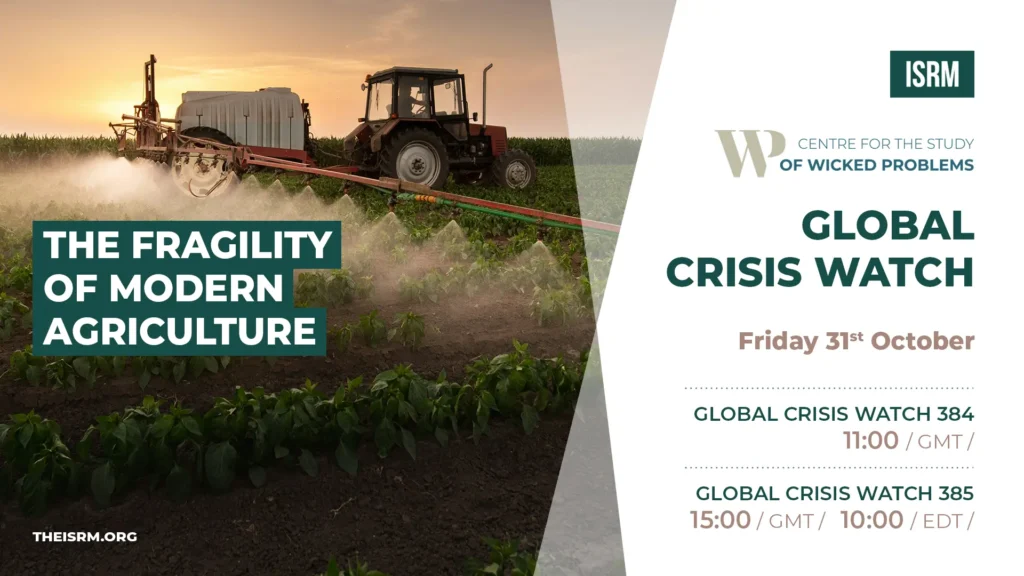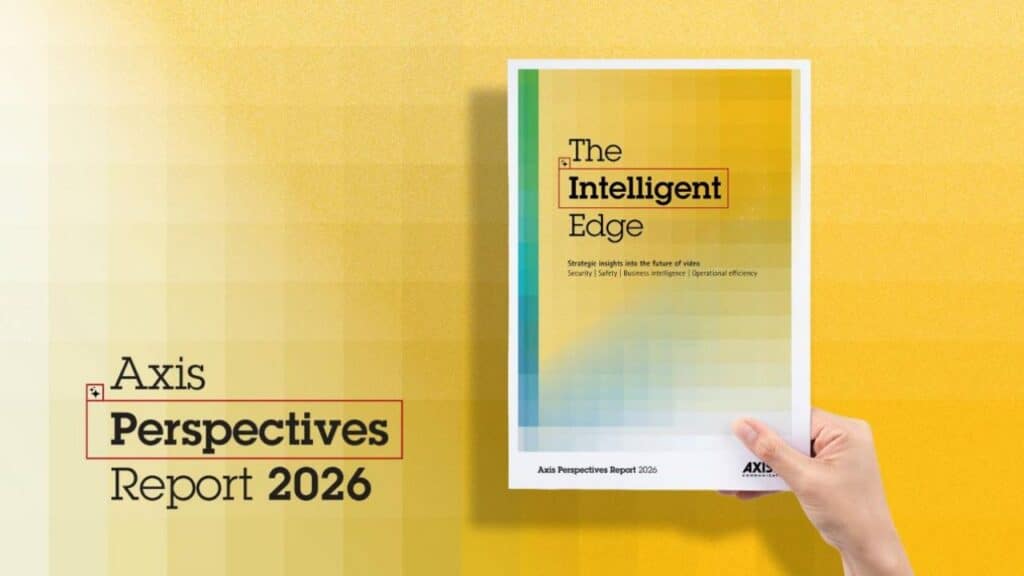The Institute of Strategic Risk Management (ISRM) has announced its latest Global Crisis Watch which this week will focus on the fragility of modern agriculture. It takes place tomorrow, October 31, at 11:00am GMT(GCW 384, and 3:00pm GMT / 10:00am EDT, (GCW 385).
Modern agriculture stands at a crossroads, balancing the need to feed an expanding global population with the vulnerabilities of an increasingly unstable world. Once seen as a symbol of progress and abundance, today’s agricultural systems reveal deep structural fragilities—exposed by economic pressures, climate disruptions, disease outbreaks and the complexity of global supply chains that link producers and consumers across continents.
At the heart of this fragility lies an overreliance on industrial-scale production. Intensive farming methods, while efficient, create conditions that heighten the risk of disease and environmental degradation. The recent surge of highly pathogenic avian influenza (H5N1) across Europe highlights this vulnerability. In autumn 2025, the virus spread unusually early and quickly, with outbreaks reported in at least ten countries, including Poland, Spain, Germany, Belgium, Slovakia and France. Authorities have introduced preventive measures such as indoor confinement of birds and vaccination campaigns to curb transmission. The scale of these outbreaks threatens not only poultry production but also international trade, food prices, and, potentially, human health.
Beyond disease, agriculture faces intensifying challenges from climate change, with droughts, floods and unpredictable weather patterns reducing yields and degrading soil. Rising costs of fuel, fertilizer and feed—combined with labour shortages and market volatility—add to the strain, especially for smaller farms already struggling to remain viable.
Meanwhile, social and technological divides deepen the challenge. While advanced precision farming tools and data-driven systems promise greater efficiency and environmental sustainability, their high cost makes them hard to access. At the same time, shrinking rural communities and an aging farming workforce are putting local resilience under pressure.
To secure the future of food production, agriculture must move toward more sustainable and adaptive models—fostering biodiversity, improving water and soil management and blending technology with local knowledge. Building resilient food systems will require not just innovation, but also close collaboration between governments, farmers, researchers and consumers. Only by working together can agriculture withstand the growing challenges of the modern era and help ensure global food security.
Join us for Global Crisis Watch 384 and 385 to explore these challenges in depth, and to discuss how both global and local actions can strengthen the foundations of our food systems.
Register here
For more ISRM news, click here




